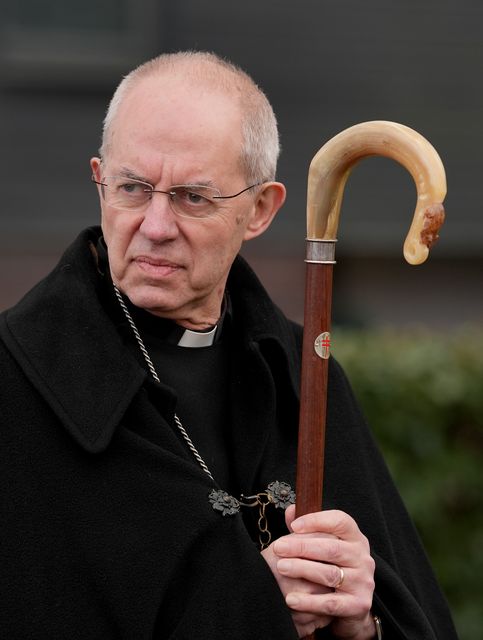The Church of England has “much to learn from others” after a damning review exposed “shameful” safeguarding failings, according to the Archbishop of York.
Stephen Cottrell offered an apology to the victims and survivors who came forward to disclose the “horrors” they experienced, adding he would work “purposefully” for independent scrutiny of safeguarding in the Church of England (CoE).
His remarks came in response to the independent Makin Review, which said barrister John Smyth’s “abhorrent” abuse of more than 100 children and young men was covered up within the CoE for years.
The Archbishop of Canterbury, Justin Welby, announced last month that he was quitting following days of pressure after the review concluded that Smyth might have been brought to justice had Mr Welby formally reported the abuser to police in 2013.
Mr Cottrell, speaking as he led a House of Lords debate, told peers: “I felt with all that’s been happening in the Church of England in recent weeks, I should end on a more sobering note.
“Unless institutions are safe places for children, families and vulnerable adults, the things that we long for, all of us, and believe in will not come to pass.”
Mr Cottrell noted it is often said ensuring the security of people is the first priority of government, adding: “The recently published Makin Review has again revealed shocking failures within the Church of England to safeguard children and vulnerable, in this case, young adults.
“I want to pay tribute to the victims and survivors who came forward to disclose the horrors they experienced. My heart goes out to them and I apologise for these shameful failings.
“Moreover, I pledge myself to work purposefully for independent scrutiny of safeguarding in the Church of England and greater operational independence.
Archbishop of Canterbury Justin Welby spoke of his ‘profound sense of shame at the historic safeguarding failures of the Church of England’ (Gareth Fuller/PA)
“These are the next steps we must take and we have much to learn from others.”
Mr Welby initially declined to resign when the report was published, saying he had “no idea or suspicion of” Smyth’s abuse before 2013 but acknowledging the review had found that after its wider exposure that year, despite being told police had been notified, he had “personally failed to ensure” it was “energetically investigated”.
In his resignation statement five days later, he said he was taking “personal and institutional responsibility for the long and retraumatising period between 2013 and 2024” and spoke of his “profound sense of shame at the historic safeguarding failures of the Church of England”.
The subject for Mr Cottrell’s debate was the importance of social cohesion and strong, supportive community life during periods of change and global uncertainty.
